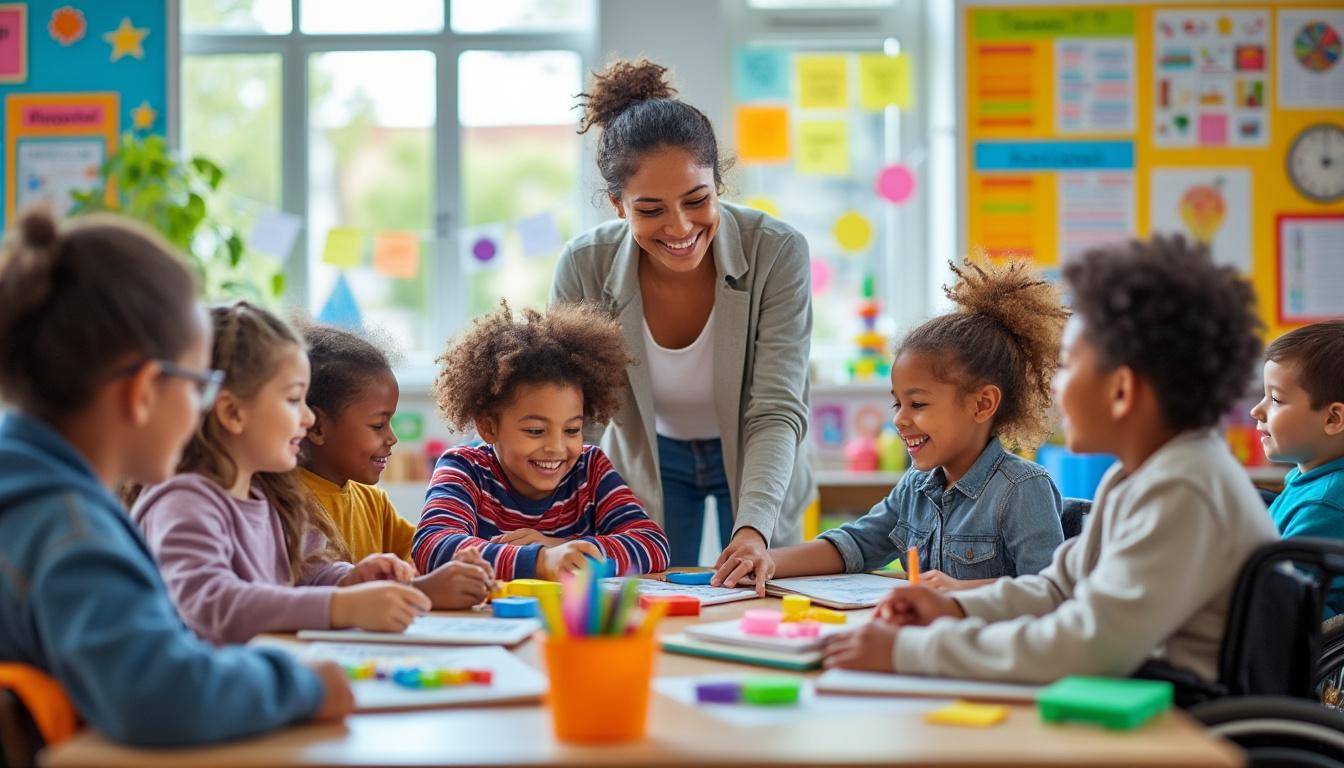Ensuring an inclusive education for children with disabilities remains a global priority as it embodies the fundamental right to learning and equal opportunity. UNICEF has taken a leading stance by championing numerous initiatives that aim to remove barriers and foster an empowering environment for these children. Through partnerships and innovative approaches, the organization strives to create classrooms where every child, regardless of ability, can thrive and develop essential skills. This article highlights UNICEF’s ongoing contributions to inclusive education, showcasing progressive policies and collaborative projects that are reshaping learning experiences worldwide.
UNICEF’s Role in Promoting Inclusive Education for Children with Disabilities 2025
UNICEF’s commitment to inclusive education is firmly grounded in international frameworks such as the UN Convention on the Rights of Persons with Disabilities and the 2030 Sustainable Development Agenda. These set the foundation for equal access to quality education for all children.
The organization’s approach includes:
- Advocacy to influence national policies and create inclusive education systems.
- Capacity building for educators through specialized training and resources.
- Collaboration with technology leaders like Microsoft, Apple, and Google to develop accessible digital learning tools.
- Partnerships with foundations such as the Lego Foundation and IKEA Foundation to support inclusive educational programs worldwide.
- Community engagement to address stigma and promote awareness of disability rights and inclusion.
An example of UNICEF’s successful intervention is the launch of Disability Inclusive Education in Emergencies tools, created in partnership with the Global Education Cluster. These key tools and case studies empower responders to ensure learning continuity for children with disabilities in humanitarian crises, an often overlooked but critical need.
Innovative Technology Enhancing Inclusive Education
The role of technology in unlocking educational potential for children with disabilities is vital. UNICEF’s collaborations with major tech companies facilitate:
- Development of adaptive learning platforms compatible with assistive devices.
- Use of virtual reality and augmented reality to provide immersive, accessible educational experiences.
- Implementation of AI-driven applications to customize learning paths for students with diverse needs.
For instance, Microsoft and Google have contributed software that allows children with visual or hearing impairments to access educational content more effectively. Apple’s accessible design guidelines have influenced the creation of devices and apps that foster independence and engagement.
These advancements support the broader goal of meeting Sustainable Development Goal 4, ensuring equitable quality education and lifelong learning opportunities for all children.
Partnerships with Foundations Advancing Inclusive Education Programs
Collaborations with philanthropic organizations like the Lego Foundation and IKEA Foundation have enabled UNICEF to expand inclusive education initiatives on multiple fronts:
- The Lego Foundation supports play-based learning approaches that are inclusive and accessible to children with disabilities, promoting creativity and cognitive development.
- The IKEA Foundation funds projects that improve physical accessibility in schools and provide necessary learning materials tailored for inclusivity.
- Save the Children and Plan International partner with UNICEF to implement community-driven programs that address social barriers and enhance school enrollment rates among children with disabilities.
Furthermore, The World Bank contributes through financing large-scale inclusive education reforms, particularly in low-income countries, ensuring that infrastructure and teacher training reach vulnerable populations effectively.
Inclusive Education in Practice: Success Stories and Teaching Innovations
Classes designed with inclusivity in mind emphasize:
- Universal Design for Learning (UDL) approaches allowing multiple means of engagement, representation, and expression.
- Use of multisensory techniques, including tactile learning tools and interactive digital content.
- Peer support systems facilitating social integration and mutual learning.
One empowering case is the establishment of lab schools where innovative inclusive practices are piloted, offering real-world examples of how barriers can be dismantled effectively. These pilot schools, often equipped with technology supported by Dell Technologies, serve as role models for broader educational reform.
Parents, educators, and students share their experiences on social platforms, raising awareness and inspiring communities globally. Resources and insights related to inclusive education are freely available and continuously updated on platforms such as Education to the Top.
Challenges and Opportunities in Disability Inclusive Education
While progress has been significant, obstacles persist:
- Limited data on children with disabilities restricts effective policy formulation.
- Social stigma and discriminatory attitudes remain prevalent in many communities.
- Inadequate funding and infrastructure limit scaling of inclusive programs.
Addressing these requires multifaceted strategies:
- Improving data collection tools aligned with global standards.
- Strengthening policy frameworks as guided by UNICEF’s Disability Inclusion Policy and Strategy 2022-2030.
- Engaging stakeholders from government, civil society, and private sectors including companies like Dell Technologies and Microsoft.
Ongoing initiatives, such as those detailed in UK aid children education programs, exemplify how targeted support can transform access and inclusion.
Tools and Resources to Support Inclusive Education Globally
UNICEF and partners provide extensive resources designed to empower educators and policymakers:
- Compendiums of best practices and case studies from diverse contexts.
- Training modules accessible online to build skills in inclusive teaching.
- Guidelines for emergency education ensuring continuity for disabled children during crises.
These tools are essential for those interested in advancing inclusive education, and detailed information is available through initiatives like lab schools education children and other platforms.


